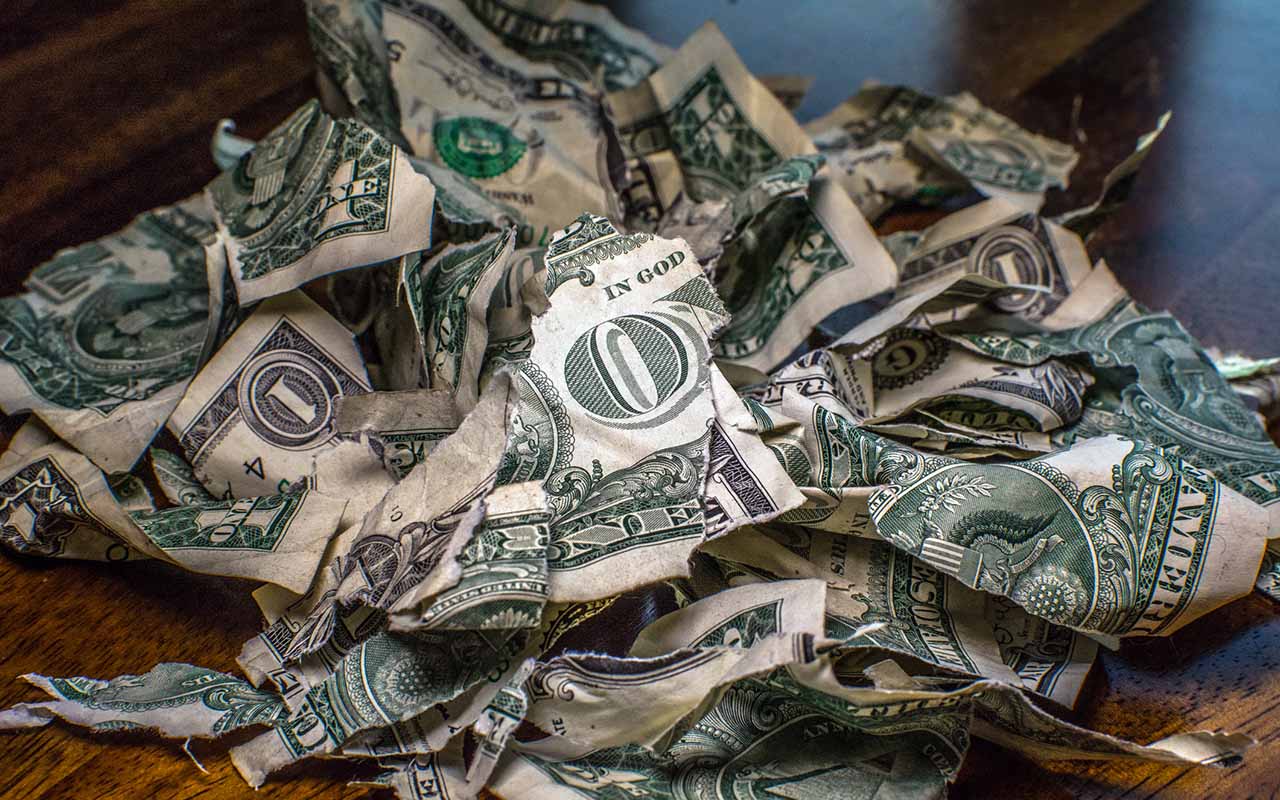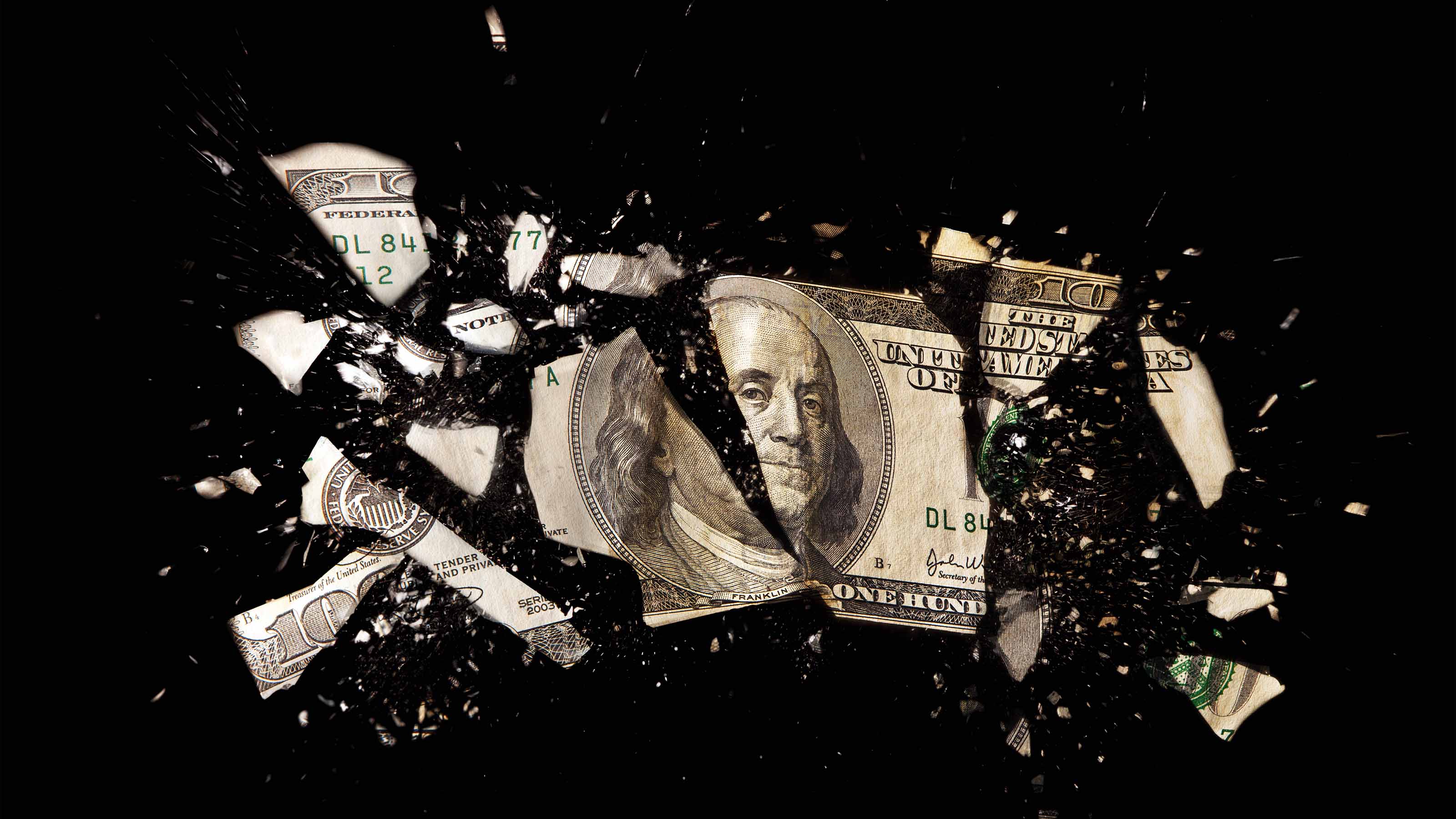7 Drowsy Dividend Stocks to Sell or Stay Away From
The Dow Jones Industrial Average hit an all-time high of 29,551.42 on Feb.


Profit and prosper with the best of Kiplinger's advice on investing, taxes, retirement, personal finance and much more. Delivered daily. Enter your email in the box and click Sign Me Up.
You are now subscribed
Your newsletter sign-up was successful
Want to add more newsletters?

Delivered daily
Kiplinger Today
Profit and prosper with the best of Kiplinger's advice on investing, taxes, retirement, personal finance and much more delivered daily. Smart money moves start here.

Sent five days a week
Kiplinger A Step Ahead
Get practical help to make better financial decisions in your everyday life, from spending to savings on top deals.

Delivered daily
Kiplinger Closing Bell
Get today's biggest financial and investing headlines delivered to your inbox every day the U.S. stock market is open.

Sent twice a week
Kiplinger Adviser Intel
Financial pros across the country share best practices and fresh tactics to preserve and grow your wealth.

Delivered weekly
Kiplinger Tax Tips
Trim your federal and state tax bills with practical tax-planning and tax-cutting strategies.

Sent twice a week
Kiplinger Retirement Tips
Your twice-a-week guide to planning and enjoying a financially secure and richly rewarding retirement

Sent bimonthly.
Kiplinger Adviser Angle
Insights for advisers, wealth managers and other financial professionals.

Sent twice a week
Kiplinger Investing Weekly
Your twice-a-week roundup of promising stocks, funds, companies and industries you should consider, ones you should avoid, and why.

Sent weekly for six weeks
Kiplinger Invest for Retirement
Your step-by-step six-part series on how to invest for retirement, from devising a successful strategy to exactly which investments to choose.
The Dow Jones Industrial Average hit an all-time high of 29,551.42 on Feb. 12. Investors continued to pile into stocks despite excessive valuations and global fears of the coronavirus – an outbreak that has already made SARS relatively tame by comparison.
The worst, investors thought, was over. The number of new cases had plateaued. Then news surfaced Feb. 24 that cases of coronavirus were surging outside China. The Dow lost 14% of its value over the next five days of trading, closing at 25.409.36. The Dow has continued to log massive price swings since then.
Volatility is back, and investors seeking shelter from this storm might be interested in owning dividend stocks to ride it out. That's a good idea, but remember: Dividend-paying companies are not all the same.
The DIVCON system from exchange-traded fund provider Reality Shares is helpful in an environment like this when quality is essential. DIVCON's methodology uses a five-tier rating to provide a snapshot of companies' dividend health, where DIVCON 5 indicates the highest probability for a dividend increase, and DIVCON 1 the highest probability for a dividend cut. And within each of these ratings is a composite score determined by cash flow, earnings, stock buybacks and other vital factors.
If dividend safety is your focus, you want to own DIVCON 5 stocks because they are the crème de la crème of dividend safety – and more likely to keep the dividend increases. The lower the score, the more cautious you should be.
Here are seven dividend stocks to sell or stay away from based on low DIVCON ratings over the past couple of months. While the fundamentals behind the scores are hardly death sentences, these stocks are best avoided or sold so you can put your money to work in more resilient opportunities.
Data is as of March 4. Dividend yields are calculated by annualizing the most recent payout and dividing by the share price.

International Game Technology
- Market value: $2.0 billion
- Dividend yield: 8.3%
- DIVCON rating: 1
- DIVCON score: 28.0
- International Game Technology (IGT, $9.61) has been flashing warning signs that DIVCON has been picking up for some time. Among them, the manufacturer of casino gaming systems has generated negative free cash flow (FCR) for years. (Companies use free cash flow to pay their dividends.)
When we last covered IGT, DIVCON also noted the company's Altman Z-score:
"Altman Z uses five factors to measure a company's credit strength; a score of 3 or above means a low/negligible probability of bankruptcy, 2.99 to 1.81 means a moderate probability and any score of 1.8 or below indicates an elevated likelihood. (For context, the median score among the largest dividend payers is 3.9.)"
At the time, IGT had an Altman Z-score of 1.61, and it has since improved a little to 1.86 – though that score is hardly reassuring.
More troubling if you're looking for sustainable dividend stocks is the fact that through the first nine months of its 2019 fiscal year, International Game Technology paid out $258 million in dividends – more than the $250 million in net income it made through Q3 2019.
Free cash flow has been improving, though. For the first nine months of fiscal 2019, IGT had free cash flow of $456.0 million, which is substantially higher than the first nine months of 2018. But the timing of FCF can be sporadic, depending heavily on things such as sales contracts. Furthermore, note that International Game Technology has net debt of $7.4 billion, which is more than three-and-a-half times greater than its market value, and dwarfs its cash of about $202 million.
One last negative indicator is a Bloomberg dividend health score of -31 (a scale of -100 to 100; a positive score indicates a higher potential for dividend growth), which tells investors you shouldn't expect much if any dividend growth in the future.

Xerox
- Market value: $7.2 billion
- Dividend yield: 3.0%
- DIVCON rating: 2
- DIVCON score: 43.75
- Xerox's (XRX, $33.69) DIVCON score isn't anything to write home about, but perhaps the most pressing issue for the printer-and-copier company right now is its inability to successfully navigate a hostile takeover of HP (HPQ).
In November, Xerox made an offer to buy the maker of laptops, printers and printer cartridges for $22 a share, with 77% of the acquisition price paid in cash and the rest with Xerox stock. In February, Xerox upped its offer to $24 a share, stating that it would begin a tender offer in early March. That offer would have paid interested HP shareholders $18.40 in cash and 0.149 Xerox shares for each share of HPQ – a 41% premium to its 30-day volume-weighted average trading price as of Feb. 10.
It would have – but HP rejected the deal, saying it "meaningfully undervalues HP and disproportionately benefits Xerox shareholders" and would offer "shareholders something they already own."
Instead, HP has adopted a one-year shareholder rights plan that would prohibit anyone (including activist investor Carl Icahn, who owns 10.9% of Xerox and 4.2% of HP) from acquiring more than 20% of the company. In addition, HP has said it will buy back $15 billion of its stock over the next three years and secure annual cost savings of at least $1 billion by the end of fiscal 2022.
Ironically, the rejection might force Xerox to spend its cash elsewhere – perhaps improving a dividend that has remained flat for years. Or perhaps it will pay off some of its debt, which stands at $4.6 billion, versus $2.7 billion in cash. But the fact that Xerox has been rebuffed on a takeover it has so aggressively pursued might indicate that it's struggling to come up with other means of growth.

Halliburton
- Market value: $13.5 billion
- Dividend yield: 4.7%
- DIVCON rating: 1
- DIVCON score: 26.5
- Halliburton (HAL, $15.39), the world's second-largest oilfield services company, hasn't had an easy time in recent years – something you can say about many oil-related stocks. Analysts were optimistic about the company's prospects for the year ahead, but the coronavirus's hit to energy demand in 2020 has been downright dreadful. HAL shares have hemorrhaged 37% in just more than two months.
It was struggling before that, too. In January, Halliburton reported a fourth-quarter loss of $1.7 billion, due to a $2.2 billion pretax charge against earnings to account for deterioration in the U.S. shale market. The company had to cut 8% of its North American workforce in mid-2019. In October, Halliburton cut 650 jobs in four states out west. Then in early December, it cut another 808 employees from its El Reno operations in Oklahoma.
If you're an income investor, you want to avoid dividend stocks that might have trouble paying their quarterly dole, both in the short-term and on a sustainable basis in the future.
Halliburton's DIVCON 1 score, which is down from its DIVCON 2 status late last year, reflects several weaknesses, including an increasingly troubling dividend-to-FCF ratio. At the end of fiscal 2019, Halliburton had $920 million in free cash flow, down from $1.1 billion a year earlier. The company paid $630 million in dividends, representing 68% of free cash flow. That's up from 57% the year before. Pressures on its profits threaten to further weaken that stance.
Halliburton's yield is nearing 5%, but don't let that tempt you.

Spectrum Brands Holdings
- Market value: $2.8 billion
- Dividend yield: 2.8%
- DIVCON rating: 1
- DIVCON score: 25.75
- Spectrum Brands Holdings (SPB, $60.58) had a transformational year in fiscal 2019, selling Rayovac, Armor All and STP for a total of $2.9 billion, reducing the number of brands it owned and the businesses it operated, opting instead to focus on cutting costs, paying down its debt, and returning capital to shareholders. Its remaining brands are nothing to sneeze at, including Kwikset door locks and hardware, Pfister faucets and showerheads, Iams pet foods and Hot Shot insecticides.
The good news? As a result of its divestitures, Spectrum Brands' long-term debt fell from $4.6 billion in fiscal 2018 to $2.3 billion at the end of December, the first quarter of its fiscal 2020. That's a healthy 50% reduction in its debt. The stock did fantastically last year, gaining more than 50%.
Its quarterly results weren't as encouraging, and in fact were downright ordinary. Organic sales declined 0.3% year-over-year to $871.5 million while its adjusted EPS fell by a penny to $0.20. Spectrum continues to work on its productivity improvement plan that's expected to boost sales while cutting costs, resulting in free cash flow growth in 2020.
Nonetheless, in 2020, Spectrum Brands' DIVCON rating dropped from 2 to 1, putting it among the riskier dividend stocks out there.
One of the biggest issues is free cash flow, which continues to be a worry. It has plenty to cover the dividend, but it's looking more extended when you factor in the stock buybacks; the company entered into an accelerated share repurchase program during the first quarter. On Feb. 19, the company reaffirmed its annual guidance to generate an adjusted net free cash flow of $240 million to $260 million. It has already paid out $236 million in dividends and share repurchases with three quarters to go in fiscal 2020.

Seagate Technology
- Market value: $13.4 billion
- Dividend yield: 5.1%
- DIVCON rating: 2
- DIVCON score: 40.75
In the fourth quarter of 2019, Seagate Technology (STX, $51.44) is a data storage company that provides hard drives, solid state drives and other solutions, and its shares have been a roller-coaster ride for years.
Its DIVCON rating was recently lowered from 3 to 2, and its DIVCON score of 40.75 isn't close to being the worst among these stocks. But it doesn't look great. A decline in earnings, an Altman Z-score of 2.49 (which is neither distressed nor safe, but somewhere in between) and a Bloomberg dividend health score of 8 (between -100 and 100) are all reasons to give the company a leery eye.
For the quarter ended Jan. 3, 2020, Seagate reported revenues of $2.7 billion that were slightly down year-over-year. Its adjusted profits were much worse, sinking 16.9% to $359 million. It wasn't so bad on a per-share basis, down 10.6% to $1.35 per share, mostly because the company has been buying back shares at a rapid clip.
That's no surprise, despite a yield of 5%-plus that's sky-high among tech-focused dividend stocks. According to DIVCON's data, Seagate spends 186% more in share repurchases than it does on dividends. In the first six months of its current fiscal year, STX repurchased $639 million of its stock at an average price of $48.92 a share. By comparison, it paid out $335 million in dividends during the first two quarters of the current fiscal year.
The worry here is more years like in its fiscal 2019, ended June 28, when it paid out $1.68 billion in dividends and share repurchases, versus $1.16 billion in free cash flow. That left nothing for debt repayment – and considering Seagate's $4.1 billion in long-term debt versus $1.7 billion in cash, that's not great.

Targa Resources
- Market value: $7.9 billion
- Dividend yield: 10.7%
- DIVCON rating: 1
- DIVCON score: 25.75
- Targa Resources (TRGP, $33.96) has failed to deliver for shareholders for years now, delivering a 49% loss over the past five years, even including its generous dividend. But the midstream energy company – it owns natural gas, natural gas liquids (NGLs) and crude oil transportation, processing and storage infrastructure – is flashing small signs of a potential turnaround. That would go a long way in ensuring Targa's 91-cent-per-share quarterly dividend remains a big part of its shareholder rewards.
You wouldn't know it by its lousy DIVCON rating and score, but Targa actually finished fiscal 2019 in an upbeat fashion. Revenues fell 5% to $2.47 billion in the fourth quarter, but its distributable cash flow (DCF, an important profitability metric for midstream energy companies) jumped 53% to $327.8 million. For the year, DCF was basically flat at $947.2 million.
In the fourth quarter, Targa paid out $212 million common stock dividends, along with $22.9 million in Series A preferred stock dividends. Thanks to the higher year-over-year distributable cash flow, TRGP's dividend coverage was 1.4 times the dividends paid out in the quarter compared to 1.0 dividend coverage for all of 2019.
That said, Targa is being dragged down by the rest of the energy sector amid the coronavirus outbreak and the subsequent worries about energy demand. The company also boasts an Altman Z-score of 1.07, which indicates a high possibility of bankruptcy over the next two years. Total debt of $7.9 billion at the end of December 2019, versus just $331 million, really drives that point home.
The dividend might very well be safe in the year ahead, but TRGP still belongs among dividend stocks to sell or avoid until it looks better prepared to make a concerted comeback bid.

Wynn Resorts
- Market value: $11.4 billion
- Dividend yield: 3.8%
- DIVCON rating: 1
- DIVCON score: 24.25
- Wynn Resorts (WYNN, $105.66) is among the stocks being hit hardest by the coronavirus outbreak. While Americans are likely to know the company for its U.S. properties, the company has a deep, established presence in the China's special district of Macau – almost 75% of its adjusted property EBITDA (earnings before interest, taxes, depreciation and amortization) effectively comes from China.
And Macau just suffered a record 87.8% year-over-year plunge in gross gaming revenue during the month of February, with much of that coming amid casinos shutting down wholesale for two weeks to stem the outbreak's tide.
Wynn Resorts is expected to pay out $4 per share in dividends; analysts estimate the company will earn $4.25 per share this year – already exceedingly tight dividend coverage, and that's based on current expectations that could very well erode if the outbreak continues apace. The picture isn't any better when you look at free cash flow; Wynn's FCF has been negative in five of the past six years.
Other indicators, including a negative Bloomberg dividend health score and an Altman Z-score of 1.44, don't bode well for Wynn's stock or its payout. But the biggest danger to the stock right now is the most apparent and obvious one, and it's more than enough reason to avoid this dividend stock right now.
Profit and prosper with the best of Kiplinger's advice on investing, taxes, retirement, personal finance and much more. Delivered daily. Enter your email in the box and click Sign Me Up.

Will has written professionally for investment and finance publications in both the U.S. and Canada since 2004. A native of Toronto, Canada, his sole objective is to help people become better and more informed investors. Fascinated by how companies make money, he's a keen student of business history. Married and now living in Halifax, Nova Scotia, he's also got an interest in equity and debt crowdfunding.
-
 5 Investing Rules You Can Steal From Millennials
5 Investing Rules You Can Steal From MillennialsMillennials are reshaping the investing landscape. See how the tech-savvy generation is approaching capital markets – and the strategies you can take from them.
-
 The Tool You Need to Avoid a Post-Divorce Administrative Nightmare
The Tool You Need to Avoid a Post-Divorce Administrative NightmareLearn why a divorce decree isn’t enough to protect your retirement assets. You need a QDRO to divide the accounts to avoid paying penalties or income tax.
-
 When Estate Plans Don't Include Tax Plans, All Bets Are Off
When Estate Plans Don't Include Tax Plans, All Bets Are OffEstate plans aren't as effective as they can be if tax plans are considered separately. Here's what you stand to gain when the two strategies are aligned.
-
 The 24 Cheapest Places To Retire in the US
The 24 Cheapest Places To Retire in the USWhen you're trying to balance a fixed income with an enjoyable retirement, the cost of living is a crucial factor to consider. Is your city the best?
-
 Analysts' Top S&P 500 Stocks to Buy Now
Analysts' Top S&P 500 Stocks to Buy NowAutodesk, DexCom and Visa make Wall Street's list of top-rated stocks this month. Some of the other names might surprise you.
-
 5 Stocks to Sell or Avoid Now
5 Stocks to Sell or Avoid Nowstocks to sell In a difficult market like this, weak positions can get even weaker. Wall Street analysts believe these five stocks should be near the front of your sell list.
-
 Best Stocks for Rising Interest Rates
Best Stocks for Rising Interest Ratesstocks The Federal Reserve has been aggressive in its rate hiking, and there's a chance it's not done yet. Here are eight of the best stocks for rising interest rates.
-
 The Five Safest Vanguard Funds to Own in a Volatile Market
The Five Safest Vanguard Funds to Own in a Volatile Marketrecession The safest Vanguard funds can help prepare investors for market tumult but without high fees.
-
 The 5 Best Inflation-Proof Stocks
The 5 Best Inflation-Proof Stocksstocks Higher prices have been a major headache for investors, but these best inflation-proof stocks could help ease the impact.
-
 5 of the Best Preferred Stock ETFs for High and Stable Dividends
5 of the Best Preferred Stock ETFs for High and Stable DividendsETFs The best preferred stock ETFs allow you to reduce your risk by investing in baskets of preferred stocks.
-
 What Happens When the Retirement Honeymoon Phase Is Over?
What Happens When the Retirement Honeymoon Phase Is Over?In the early days, all is fun and exciting, but after a while, it may seem to some like they’ve lost as much as they’ve gained. What then?
